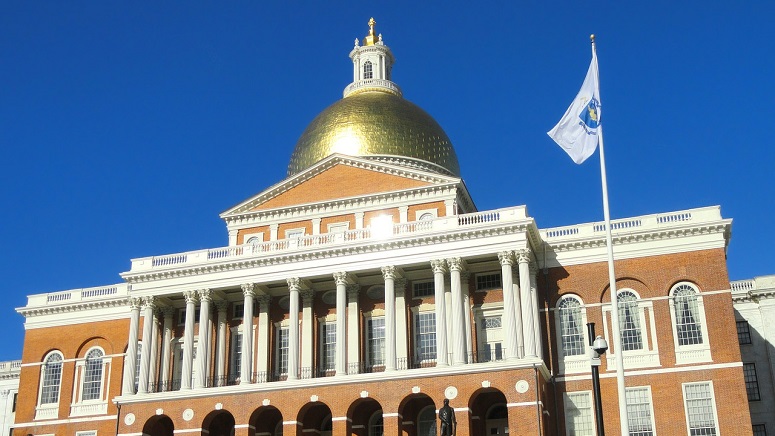House leadership has baked more than $110 million in funding for the early education and care sector into the fiscal year 2023 budget proposal that representatives will debate later this month, including a $40 million increase for provider salaries.
Early education and child care appears primed to be a major focus of investment and attention as the House and Senate prepare to debate and pass their own budgets for fiscal year 2023 over the next seven weeks.
The importance and vulnerabilities of the state’s early education and care field came into sharp focus when the pandemic closed schools and child care centers, upending the work routines of many parents, and advocates have said this year represents an opportunity for Beacon Hill to stabilize and reshape the sector.
House Speaker Ron Mariano and Ways and Means Chairman Aaron Michlewitz on Monday toured Ellis Early Learning in Boston with colleagues and later announced the House’s initial steps towards implementing the recommendations of a recent special commission report on the early education field.
“The report came through with quite a price tag, one which we could not handle all at once. But we made a commitment … that we wanted to begin immediately,” Mariano said, referring to the $1.5 billion in investments the report found are needed to stabilize the early education and care system and help it meet the needs of families. “We didn’t want to wait. We didn’t want to put off anything that was in that report that we thought could have an impact today.”
Massachusetts families spend a lot of money on child care — infant care in Massachusetts averages more than $20,000 annually and the average cost for a 4-year-old is nearly $15,000 per year, according to a report released last month by the Special Legislative Early Education and Care Economic Review Commission.
For many families, early education and care eat up between 20 and 40 percent of their household income, and the share is even higher for families with one earner.
“Massachusetts consistently ranks as one of the least affordable states for early education and care,” the report said. “Massachusetts is the third highest of the 50 states and the District of Columbia in the percentage of income spent on early education and care costs.”
Not only is child care expensive, but it is becoming harder and harder to find.
The state’s early child care sector has lost 1,359 programs (about 17 percent of the total) since March 2020, which translates to 23,395 slots for children, the special commission found.
The programs that remain across Massachusetts “are experiencing ongoing financial instability due to unstable and insufficient revenue and a growing workforce shortage,” the commission said.
The report said most programs are stuck in something of a vicious cycle: The cost of tuition for families is already a significant concern, but most providers can’t offer better compensation to their staff to improve the quality of care without increasing charges to families.
The dynamic, the report said, becomes “a major reason that compensation levels remain so low in the early education and care field.”
While the House rolled out the budget’s early education and workforce investments Monday, the full House budget is scheduled to be released Wednesday from the Ways and Means Committee.
(Copyright (c) 2024 State House News Service.

